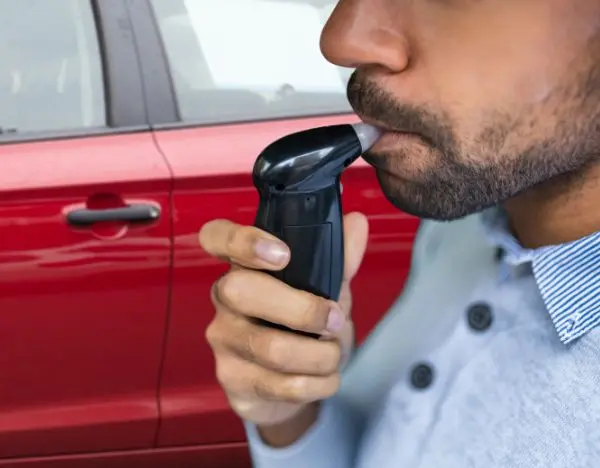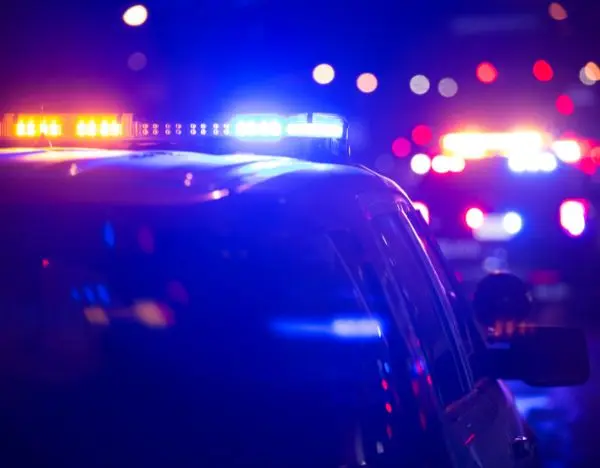How Does a Breathalyzer Work?

As a Buffalo DWI/DUI defense law firm, we often encounter clients asking, "how does a breathalyzer work?," and their role in DWI/DUI cases. Understanding how these devices function is crucial for anyone facing charges related to drinking and driving. In this comprehensive guide, we'll explore the inner workings of breathalyzers, their accuracy, and what you need to know if you're ever asked to take a breath test. For immediate legal assistance, contact us today.
What Is a Breathalyzer?
Before delving into how a breathalyzer works, let's first define it. A breathalyzer is a device used to estimate blood alcohol content (BAC) by analyzing a person's breath. Law enforcement officers commonly use these devices during traffic stops to determine if a driver is operating a vehicle under the influence of alcohol.
The term "breathalyzer" is a brand name that has become genericized, much like "Kleenex" for tissues. The correct general term is "breath alcohol testing device" or "breath analyzer." However, for this article, we'll use the more commonly known term "breathalyzer."
How Does a Breathalyzer Work?
How does a breathalyzer work? We must delve into some basic biology and chemistry to understand. When you consume alcohol, it's absorbed into your bloodstream through the walls of your stomach and small intestine. As your blood circulates through your body, it passes through your lungs, where some alcohol evaporates into the air sacs (alveoli).
When you exhale, this alcohol-laden air is expelled from your lungs. The amount of alcohol in your breath is proportional to the amount in your blood. This relationship, known as the partition ratio, forms the basis for how breathalyzers estimate your blood alcohol concentration.
Types of Breathalyzers
There are several types of breathalyzers, each using different methods to detect alcohol. The three most common types are:
- Semiconductor oxide-based breathalyzers
- Fuel cell breathalyzers
- Infrared spectrophotometer breathalyzers
Let's explore how each of these types works.
Semiconductor Oxide-Based Breathalyzers
Semiconductor oxide-based breathalyzers are often used in portable, personal devices. Here's how they work:
- The device contains a semiconductor element, usually made of tin oxide.
- When alcohol molecules come into contact with the semiconductor, they're oxidized into acetic acid.
- This oxidation process causes a change in the electrical resistance of the semiconductor.
- The breathalyzer measures this change in resistance and uses it to estimate the BAC.
These devices are relatively inexpensive and compact, making them popular for personal use. However, they're generally less accurate than other types and can be affected by other substances in the breath, such as acetone (which can be present in the breath of diabetics or people on low-carb diets).
Fuel Cell Breathalyzers
Fuel cell breathalyzers are more accurate than semiconductor devices and are often used by law enforcement for roadside testing. Here's how they work:
- The device contains two platinum electrodes with a porous acid-electrolyte material between them.
- When the alcohol-containing breath is introduced, it reacts with the platinum-electrode catalyst.
- This reaction produces acetic acid, protons, and electrons.
- The electrons flow through a wire from one electrode to another, creating an electrical current.
- The breathalyzer measures this current, directly proportional to the alcohol in the breath.
Fuel cell breathalyzers are more specific to alcohol than semiconductor devices, meaning they're less likely to give false positives due to other substances in the breath.
Infrared Spectrophotometer Breathalyzers
Infrared spectrophotometer breathalyzers are the most accurate and are typically used for evidential testing at police stations. Here's how they work:
- The device shines infrared light through the breath sample.
- Different molecules absorb infrared light at different wavelengths.
- Ethanol (the type of alcohol in alcoholic beverages) absorbs light at a specific wavelength.
- The device measures the amount of light absorbed at this wavelength to determine the concentration of alcohol in the breath.
These devices are highly accurate and can detect the presence of other substances in the breath, which can be useful for identifying potential interfering factors.
The Breath Test Process

Now that we understand what a breathalyzer does and how it works, let's walk through the typical process of a breath test:
- Initial screening: An officer may use a portable breathalyzer (usually a fuel cell or semiconductor device) for roadside testing if they suspect a driver is under the influence.
- Observation period: Before administering an evidential breath test, officers must observe the subject for a period (typically 15-20 minutes) to ensure they don't eat, drink, smoke, or vomit, which could affect the test results.
- The test: The subject is instructed to blow steadily into the breathalyzer for several seconds until they provide a sufficient breath sample.
- Analysis: The breathalyzer analyzes the sample using one of the abovementioned methods.
- Results: The device displays the estimated BAC, usually within a few seconds to a minute.
- Confirmation: In many jurisdictions, a second test is performed after a short wait to confirm the first test's results.
Factors Affecting Breathalyzer Accuracy
While breathalyzers, particularly evidential-grade devices, are generally reliable, several factors can affect their accuracy:
- Calibration: Breathalyzers need to be regularly calibrated to ensure accuracy. Improperly calibrated devices can give inaccurate readings.
- Mouth alcohol: Recent consumption of alcohol can leave residual alcohol in the mouth, leading to artificially high readings. This is why officers are supposed to observe subjects for a period before testing.
- Medical conditions: Certain medical conditions, such as acid reflux or diabetes, can potentially affect breathalyzer readings.
- Interference from other substances: Some substances, like acetone, can be mistaken for alcohol by some types of breathalyzers.
- Environmental factors: Extreme temperatures or electromagnetic interference can potentially affect some breathalyzers.
- User error: Improper device use or failure to follow proper testing protocols can lead to inaccurate results.
Understanding these factors is crucial for anyone facing DWI/DUI charges, as they can potentially form the basis for challenging breathalyzer results in court.
What To Do If You Fail a Breathalyzer Test in Buffalo
Failing a breathalyzer test in Buffalo can be a stressful experience, but your actions immediately following the test can significantly impact your case. Here are the key steps to take:
- Remain Calm and Cooperative: Stay composed and avoid aggressive behavior with law enforcement.
- Don't Admit Guilt: Exercise your right to remain silent and avoid making self-incriminating statements.
- Document the Incident: Write down all details you can remember about the events leading up to and including the breathalyzer test.
- Seek Medical Attention if Necessary: Get medical help if you're unwell or have conditions that might have affected the test results.
- Request an Independent Blood Test: Exercise your right to an additional, potentially more accurate blood alcohol test.
- Contact a DWI/DUI Defense Attorney Immediately: Seek legal representation to guide you through the process and build your defense.
- Attend All Required Court Appearances: Show up for all scheduled court dates to avoid additional charges or complications.
- Comply with Any Temporary Restrictions: Adhere to any license suspensions or other restrictions to prevent further legal issues.
- Consider Alcohol Education Programs: Enroll proactively in education or treatment programs, which the court may view favorably.
- Prepare for DMV Hearings: Work with your attorney to get ready for administrative hearings that could affect your driving privileges.
Remember, failing a breathalyzer test doesn't guarantee a DWI/DUI conviction. Many factors can affect these tests' accuracy, and an experienced attorney can help identify potential defenses in your case.
Legal Implications of Breathalyzer Tests
In New York State, as in many other states, there are important legal considerations surrounding breathalyzer tests:
- Implied consent: By driving on New York roads, you implicitly consent to chemical tests of your breath, blood, or urine if arrested for DWI/DUI.
- Right to refuse: While you have the right to refuse a breathalyzer test, doing so can result in automatic license revocation and can be used against you in court.
- Per se laws: In New York, a blood alcohol concentration of 0.08% or higher is considered per se evidence of intoxication, meaning no additional proof of impairment is necessary for a DWI conviction.
- Zero tolerance: For drivers under 21, any BAC of 0.02% or higher can result in a violation under New York's Zero Tolerance Law.
- Aggravated DWI: A blood alcohol concentration of 0.18% or higher can result in charges of Aggravated DWI, which carries harsher penalties.
How a DWI/DUI Defense Lawyer Can Help
Understanding breathalyzers is crucial, but navigating the legal system after a DWI/DUI charge requires professional assistance. Here's how our Buffalo DWI/DUI defense law firm can help:
Case Evaluation and Strategy
We thoroughly review your case, including the circumstances of your arrest, police reports, evidence, and the validity of field sobriety and chemical tests. Based on this comprehensive evaluation, we develop a tailored defense strategy designed to achieve the best possible outcome for your specific situation.
Challenging Breathalyzer Evidence
Our team scrutinizes breathalyzer results, looking for potential issues that could affect their reliability. This includes examining the device's calibration records, reviewing the procedures used during test administration, and considering any environmental factors that might have influenced the results.
Additional Investigation
To build a strong defense, our team conducts additional investigations as needed. This may involve interviewing witnesses, reviewing surveillance footage, or consulting with relevant experts who can provide insights into various aspects of your case.
Negotiation with Prosecutors
We leverage our deep understanding of local laws and procedures to negotiate with prosecutors. Our goal is to secure the best possible outcome, which may include reduced charges, alternative sentencing options, or plea bargains that minimize the impact on your life.
Court Representation
If your case goes to trial, we provide robust representation in court. This includes presenting compelling defense strategies, cross-examining prosecution witnesses, and making persuasive arguments to judges and juries.
Handling Administrative Proceedings
DWI/DUI cases often involve administrative proceedings in addition to criminal charges. We assist with DMV hearings to protect your driving privileges and address any license suspension or revocation issues.
Addressing Collateral Consequences
A DWI/DUI charge can have far-reaching consequences. We advise you on potential impacts to your driving privileges, employment opportunities, and insurance rates, helping you make informed decisions throughout the legal process.
Exploring Alternative Programs
For eligible clients, particularly first-time offenders, we explore alternative programs that may help avoid a conviction. These could include diversion programs, substance abuse treatment programs, or community service alternatives.
Post-Conviction Support
In cases where a conviction cannot be avoided, we continue to support our clients. This includes assistance with restoring driving privileges, guidance on fulfilling court-ordered requirements, and when eligible, help with record sealing or expungement processes.
Remember, a DWI/DUI charge is not the same as a conviction. With proper legal representation, it's often possible to minimize the impact on your life or have charges reduced or dismissed.
Challenging Breathalyzer Results
Given the serious consequences of a DWI/DUI conviction, it's important to know that breathalyzer results can be challenged in court. Some potential grounds for challenge include:
- Lack of probable cause for the initial stop or arrest
- Improper administration of the test
- Lack of proper calibration or maintenance of the device
- Presence of interfering factors (medical conditions, environmental factors, etc.)
- Chain of custody issues with the evidence
As a DWI/DUI defense law firm, we carefully examine all aspects of breathalyzer evidence to ensure our clients' rights are protected and to identify any potential weaknesses in the prosecution's case.
Don't Face DWI/DUI Charges Alone – Get Professional Help Now
Dealing with a DWI/DUI charge in Buffalo can be overwhelming, but you don't have to navigate this challenging situation by yourself. Our experienced DWI/DUI defense attorneys are here to protect your rights, challenge breathalyzer evidence, and fight for the best possible outcome in your case.
Don't let a breathalyzer test result determine your future. Contact our Buffalo DWI/DUI defense law firm today for a confidential consultation. We're ready to put our knowledge and experience to work for you.

